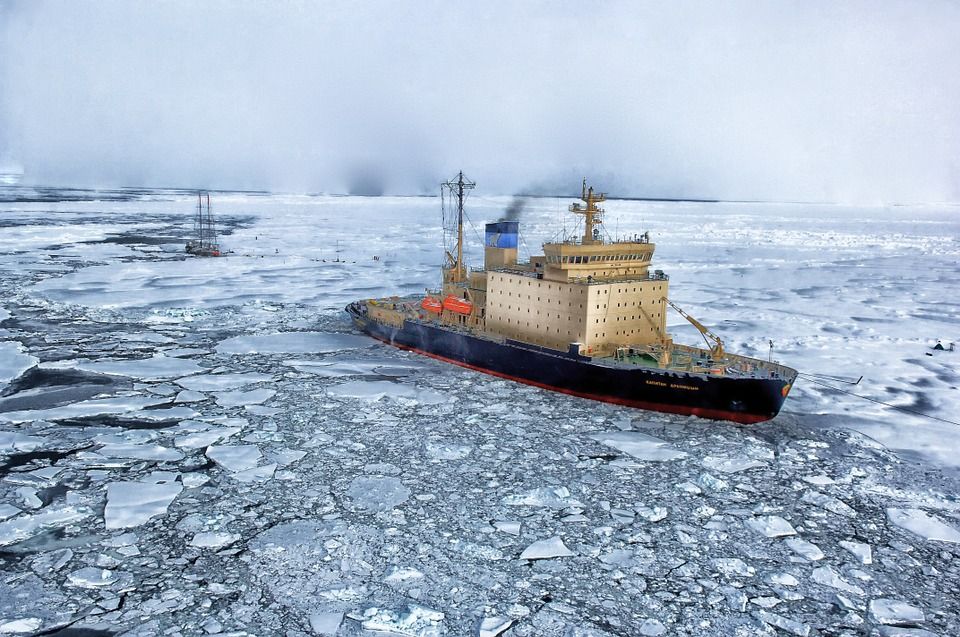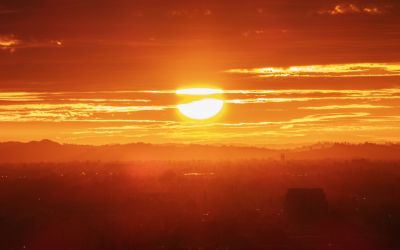Pacific islands threatened while nations await exploitation of oil
Climate change and rising sea levels pose an urgent situation for inhabitants of Pacific Islands and according to Australia's military they may now also spark a global conflict over oil under melting Arctic ice.

 Climate change and rising sea levels pose an urgent situation for inhabitants of Pacific Islands and according to Australia's military they may now also spark a global conflict over oil under melting Arctic ice.
Climate change and rising sea levels pose an urgent situation for inhabitants of Pacific Islands and according to Australia's military they may now also spark a global conflict over oil under melting Arctic ice.
The biggest threat of global conflict currently lies beneath the Arctic as melting icecaps give rise to an international race for undersea oil and gas deposits. This is information highlighted by a confidential security review conducted by Australia's Defense Force in 2007.
The report, "Climate Change, The Environment, Resources And Conflict," was obtained under Australian Freedom of Information laws. A summary of the review attained by the Sydney Morning Herald also underlined that environmental stress had increased the risk of conflicts in the Pacific over resources and food.
Oil reserves under the Arctic ice caps are thought to be abundant and nations have allegedly been waiting for the ice caps to melt so that the "black gold" could be cheaply extracted. Five countries surrounding the Arctic – the US, Russia, Canada, Norway and Denmark (through its dependency, Greenland) – have shown interest in the energy reserves for some years.
In the first-comprehensive assessment of oil and gas resources north of the Arctic Circle, carried out by American geologists, the High North in 2008 revealed that underneath the ice, the Arctic region may contain as much as a fifth of the world's undiscovered yet recoverable oil and natural gas reserves.
This includes 90 billion barrels of oil, enough to supply the world for three years at 2007 consumption rates, stated the report.
Since the review, climate change has accelerated the situation, bringing the oil closer to being exploited. Many believe that the energy reserves should be unexploited and saved for use in later years. Reports over the years have shown that we are on the cusp of peaking global oil, at which global oil production will reach terminal decline, so using up Arctic oil is a controversial issue.
"Environmental stress, caused by both climate change and a range of other factors, will act as a threat multiplier in fragile states around the world, increasing the chances of state failure," said the report summary, published in the Herald on Wednesday.
"The Arctic is melting, potentially making the extraction of undersea energy deposits commercially viable. Conflict is a remote possibility if these disputes are not resolved peacefully," the assessment said.
The military refused to release the full report because it could harm Australia's defense capability and international relations, the Herald said.
The report said climate change would likely "increase demands for the Australian Defense Force to be deployed on additional stabilization, post-conflict reconstruction and disaster relief operations in the future."
The defense analysis reiterates that low-lying coastlines threaten Pacific Islands states with some veering closer to inundation and relocation of inhabitants. This would lead to a global increase in refugees from vulnerable Pacific islands.
Illegal immigration is also a rising threat, which could mean an increasing presence north of Australia by the country's navy, the report said.
Rising sea levels and disputes over access to scarce food resources could also lead to more illegal fishing and clashes between locals and businesses.
The threat of conflicts continues for vulnerable nations while other nations surrounding the Arctic oil reserves look to exploiting climate change and melting ice caps. A gap between science and politics is anticipated to be improved in international climate talks, however with the 16th Conference of Parties closing on Friday (10th December 2010) without reaching a legally binding treaty, hopes rest on COP17 in Durban in 2011.
Author: Marianna Keen | Climate Action
Image: US Geological Survey/ Flickr






